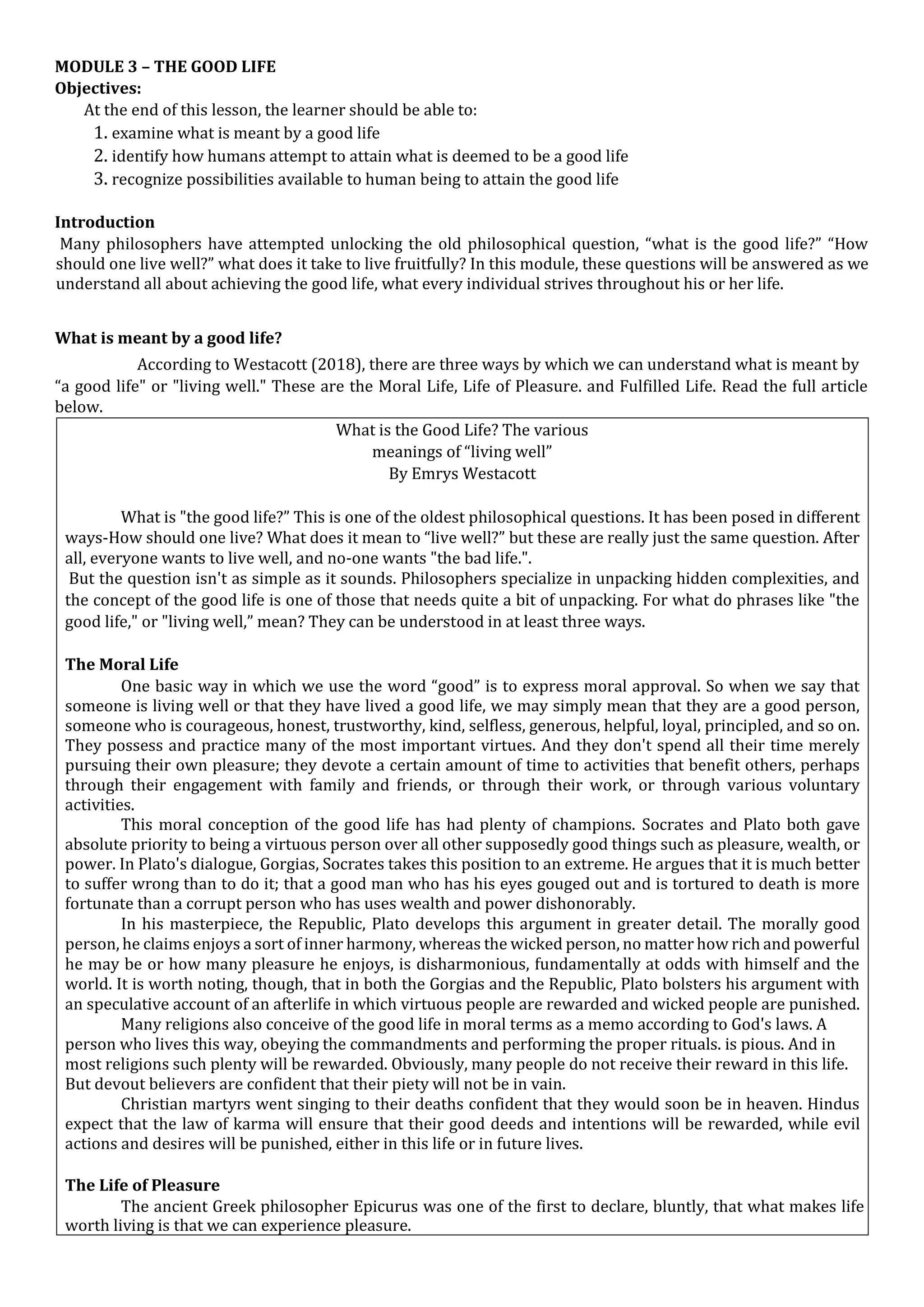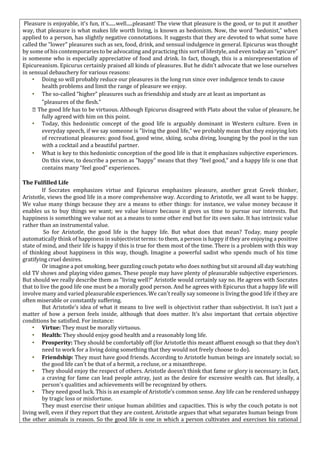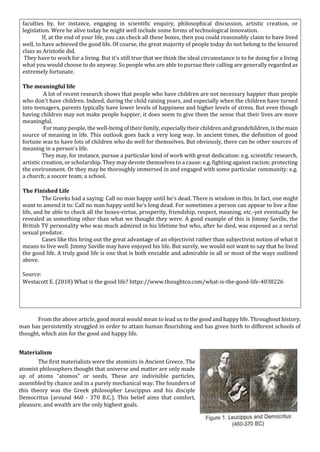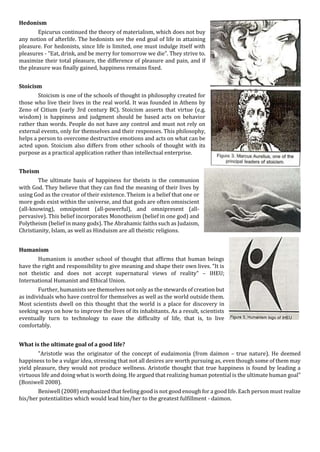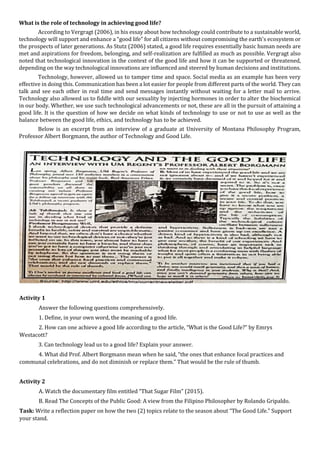The document discusses different philosophical perspectives on achieving "the good life." It examines views such as:
1) Living morally/virtuously according to Socrates and Plato. Focusing on virtues like courage and honesty.
2) Pursuing pleasure according to Epicurus. However, Epicurus believed higher pleasures like friendship were most important, not just sensual pleasures.
3) Fulfilling one's human capacities according to Aristotle. This involved living virtuously, with good health, friends, respect and exercising reason through activities like philosophy.
The document also discusses finding meaning through things like family, work, or causes. It notes that while some may feel happy, their actions may not truly reflect living well
